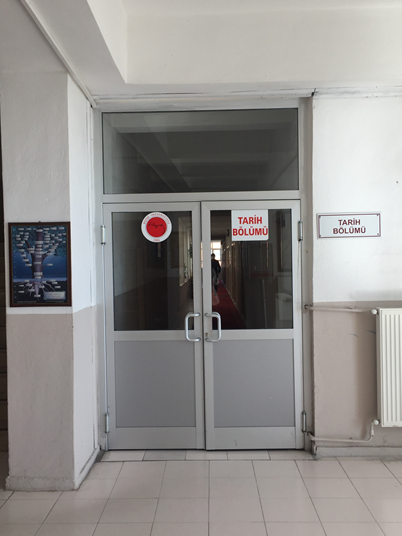
The Department of History was opened in 1996-1997 academic year as affiliated to Erciyes University Yozgat Faculty of Arts and Sciences and still continues its education program as affiliated to Yozgat Bozok University Faculty of Arts and Sciences. The department started to admit students in 1996-1997 academic year and opened the second education program in 2008-2009 academic year.
ESTABLISHMENT
The Department of History was opened in 1996-1997 academic year as an affiliate of Erciyes University Yozgat Faculty of Arts and Sciences. With the establishment of Yozgat Bozok University in March 2006, it continued to continue its education program under the Faculty of Arts and Sciences. The department started to admit students in 1996-1997 academic year and opened the second education program in 2008-2009 academic year.
DEPARTMENT PROFILE
The main objective of the Department of History is to train graduates who have the knowledge and skills to define, explain, apply, decide and teach the basic principles of the science of history and who carry all the powers and responsibilities provided by the laws as history undergraduates. There are 7 departments within the department: History of the Republic of Turkey, Modern History, Modern History, Medieval History, General Turkish History, Ancient History, History of Ottoman Institutions and Civilization.
EMPLOYMENT AREAS OF DEPARTMENT GRADUATES
The main employment policy of the Department of History is to train well-equipped historians who are able to analyze the stages of human life with scientific methods and have an investigative spirit. In line with this goal, the employment opportunities of graduates can be listed as follows:
1. After completing the pedagogical formation program, graduates can work as history teachers in educational institutions affiliated to the Ministry of National Education and private educational institutions.
2. Graduates can work in various archives in our country by improving their paleographic text reading skills.
3. Graduates can work as civil servants in various public institutions, as specialists and assistant specialists in research centers after meeting the requirements for civil service.